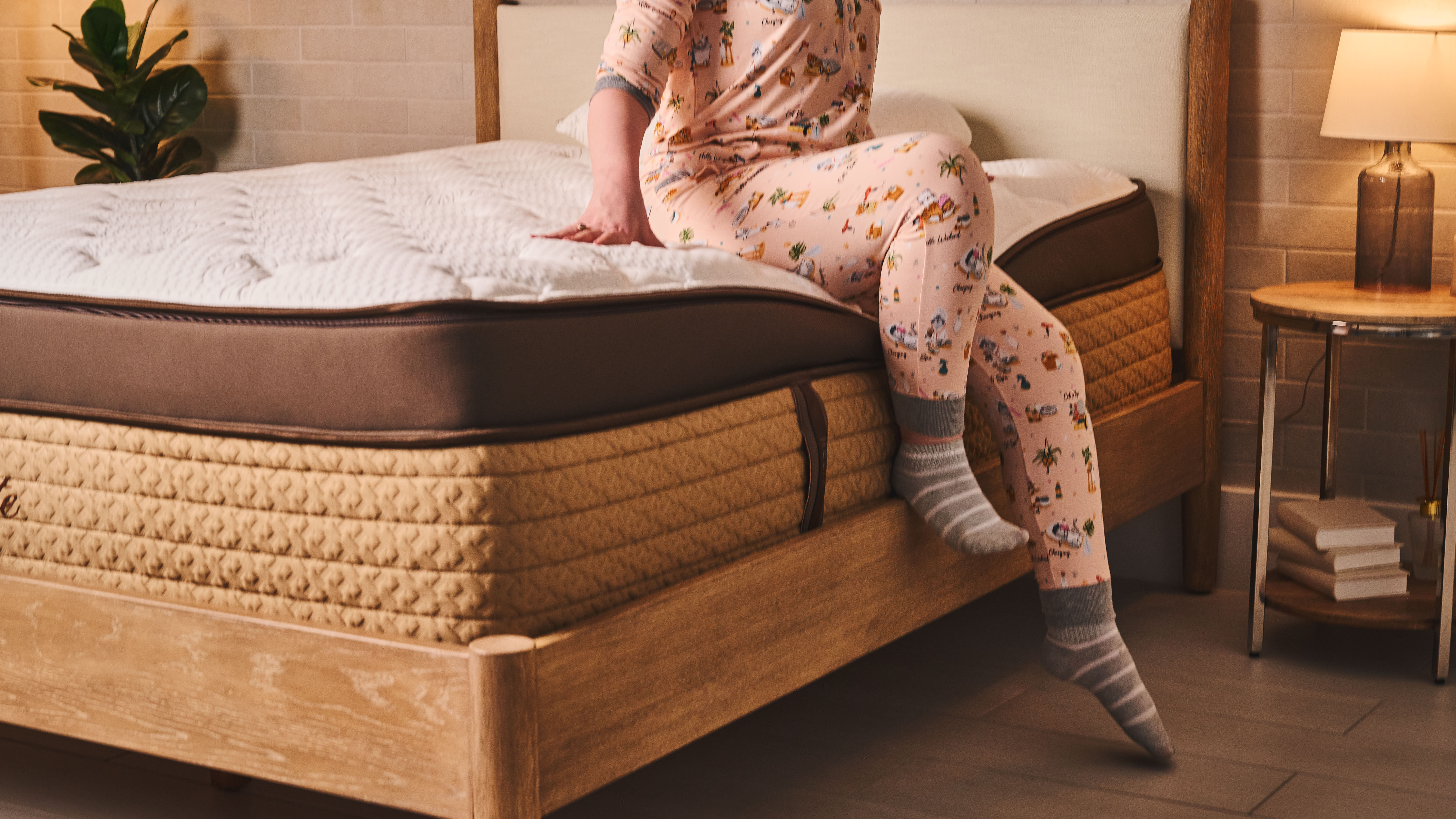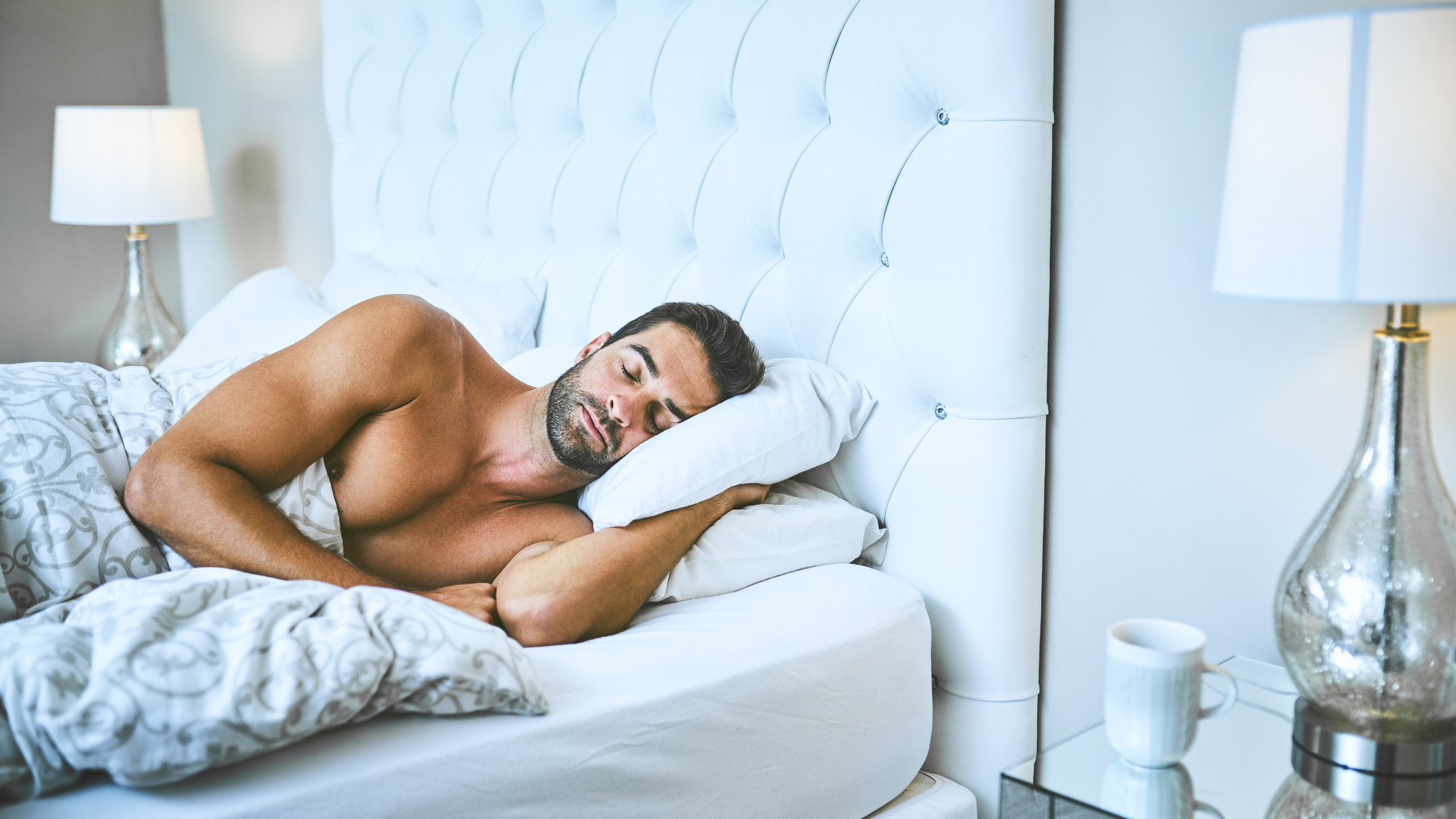How thick should a mattress be? Your guide to picking the right height
When it comes to mattresses, taller isn't always better

Here at Tom’s Guide our expert editors are committed to bringing you the best news, reviews and guides to help you stay informed and ahead of the curve!
You are now subscribed
Your newsletter sign-up was successful
Want to add more newsletters?

Daily (Mon-Sun)
Tom's Guide Daily
Sign up to get the latest updates on all of your favorite content! From cutting-edge tech news and the hottest streaming buzz to unbeatable deals on the best products and in-depth reviews, we’ve got you covered.

Weekly on Thursday
Tom's AI Guide
Be AI savvy with your weekly newsletter summing up all the biggest AI news you need to know. Plus, analysis from our AI editor and tips on how to use the latest AI tools!

Weekly on Friday
Tom's iGuide
Unlock the vast world of Apple news straight to your inbox. With coverage on everything from exciting product launches to essential software updates, this is your go-to source for the latest updates on all the best Apple content.

Weekly on Monday
Tom's Streaming Guide
Our weekly newsletter is expertly crafted to immerse you in the world of streaming. Stay updated on the latest releases and our top recommendations across your favorite streaming platforms.
Join the club
Get full access to premium articles, exclusive features and a growing list of member rewards.
When shopping for a mattress, you're likely focused on the price, firmness, and materials — but what about height? You may believe that the taller the mattress, the more cozy it'll be, but that's not the case for everyone.
You'll notice the best mattresses come in a range of heights to suit many types of sleepers and spaces. To help you figure out the right mattress thickness for your needs, we've put together this handy explainer.
While thick mattresses tend to cost more due to all of the materials they use, you'll be able to save money by taking advantage of this month's mattress sales.
Why does mattress thickness matter?
Whether you are buying one of this year's best hybrid mattresses, packed full of foams and coils, or opting for a contouring memory foam mattress, thickness (height) matters a lot.
Thick mattresses are more durable and better for supporting larger sleepers, but if you have mobility issues, you may have a harder time getting up and down from a taller bed. Also consider the size of your room; an extra-thick mattress will make a smaller space seem cluttered.
Thin mattresses are suitable for children or smaller adults, and they work well with bunk beds and foldaway beds. While they tend to be more affordable, thinner mattresses are also prone to wearing out sooner.
Mattress thickness chart
Here's a brief rundown of the most common mattress thickness levels and who (and what sleep scenarios) they are best for:
Type | Range | Best For |
Low Profile | 2 to 5 inches | Babies and infants, bunk beds, foldaway beds |
Slim | 5 to 8 inches | Kids, shorter adults, very small bedrooms |
Standard | 8 to 12 inches | Most adults and sleep styles |
Thick/Deep | 12 to 16 inches | Plus-sized adults, couples, families, side sleepers |
Extra Thick/Extra Deep | 16 inches or more | Plus-sized adults, extra large bedrooms |
What determines mattress thickness?

The support layer accounts for most of a mattress's height and consists of springs, dense polyfoam, or latex. The thicker it is, the longer you can expect the mattress to last.
Comfort layers range from 1 to 4 inches thick and are usually made of foam, cotton, or wool. Their main purpose is to provide pressure relief and dampen movement.
Luxury mattresses add a pillow-top or Euro-top for another layer of cushioning and a more luxurious appearance.
Get instant access to breaking news, the hottest reviews, great deals and helpful tips.
How to choose the right mattress thickness
You may dream of owning an extra-thick mattress but it could end up being a nightmare if it doesn't mesh with your preferences.
Keep the following in mind when choosing the right mattress thickness for your needs:
1. Sleeping position
Are you a side, back, or front sleeper (or a little bit of each)? How you fall into bed at night and wake up in the morning will determine how thick or thin your mattress should be:
- Side sleepers benefit most from a thicker mattress (12 to 14 inches) with multiple comfort layers to alleviate pressure from their shoulders and hips.
- Back sleepers should fare well with a standard mattress height (10 to 12 inches) that keeps their spine aligned while relieving pressure from their lower back.
- Stomach sleepers can opt for a mattress that skews thinner (10 inches) to keep their hips upright.
- Combination sleepers are best suited to a mattress with a standard thickness (12 inches) to comfortably accommodate any position.
2. Body Weight
Choose a mattress thickness that can comfortably support your weight. Anything too firm or soft will result in unpleasant aches in the morning:
- Lightweight sleepers (130lbs or less) will want to look for a tall mattress (at least 12 inches) with multiple plush comfort layers.
- Average-weight sleepers (130lbs to 230lbs) should be fine with a standard-height mattress (10 to 12 inches) with a medium-firm feel. This will depend on your main sleep position and the construction of the mattress.
- Heavyweight sleepers (230lbs or more) will need a tall mattress (12 to 14 inches) with at least a 6-inch base layer and thicker comfort layers for maximum contouring and support.

3. Health conditions
The average bed height (with mattress) is around 25 inches. You should be able to sit at the edge of your bed with your feet flat on the ground and knees bent at a 90-degree angle.
Anything too tall or short will make it difficult to get in and out of bed in the morning, especially if you have limited mobility. However, if a taller mattress makes more sense based on other factors, adding a set of bedside steps could help.
4. Sleeping arrangements
Thicker mattresses can handle more weight. If you're sharing a bed with a partner, your kids, and/or your pets, look for a mattress that's at least 12 inches thick. Anything thinner will wear out sooner.
5. Size of your bedroom
A thick mattress will fit nicely in a palatial space, but in a smaller room, it could make you feel claustrophobic. Also consider your bed frame — if you have an adjustable bed or a platform bed, a thick mattress may not work.
Which mattress thickness should you buy?
Most adults should fare well with a standard mattress height (8 to 12 inches) but if you want to go taller or shorter, here's what we recommend...
Buy a thicker mattress if...
✅ You're a side sleeper: Most of the best mattresses for side sleepers skew taller as they're loaded with comfort foams to relieve pressure in the shoulders and hips.
✅ You're over 230lbs: Thicker beds boast more layers and taller support cores, as you'll find with many of the best mattresses for heavy sleepers.
✅ You share a bed: Whether you're sharing a bed with one person or as a family, thicker mattresses can withstand more weight than thinner ones.
Buy a thinner mattress if...
✅ You have mobility issues: A thinner mattress will not only be easier for you to get in and out of, but it'll be easier to move and rotate with limited assistance.
✅ You have a small bedroom: Tall mattresses just don't look good in a tiny bedroom. A mattress on the smaller side of standard should work.
✅ You want to save money: Thicker mattresses use more materials, and that's reflected in their pricing. Going for a bed that's not too lofty is one way to keep some cash in your wallet.

Based in Philadelphia, writer and editor Alison Barretta has been sharing buying advice and retail news for over 15 years. Since 2020 she's been helping Tom's Guide expand its robust library of sleep content by researching the latest trends, speaking with renowned experts, and going behind the scenes at Saatva, Casper, Sleep Number, Tempur-Pedic, and 3Z Brands. Alison has reviewed everything from budget mattresses to immersive luxury smart beds that automatically adjust to your every move. When she isn't reviewing mattresses or searching for great deals to save you money, Alison can be found practicing yoga and martial arts, experimenting with recipes, getting too invested in the Philadelphia Flyers, and snoozing with her cat / assistant mattress tester Alex.
You must confirm your public display name before commenting
Please logout and then login again, you will then be prompted to enter your display name.
 Club Benefits
Club Benefits










